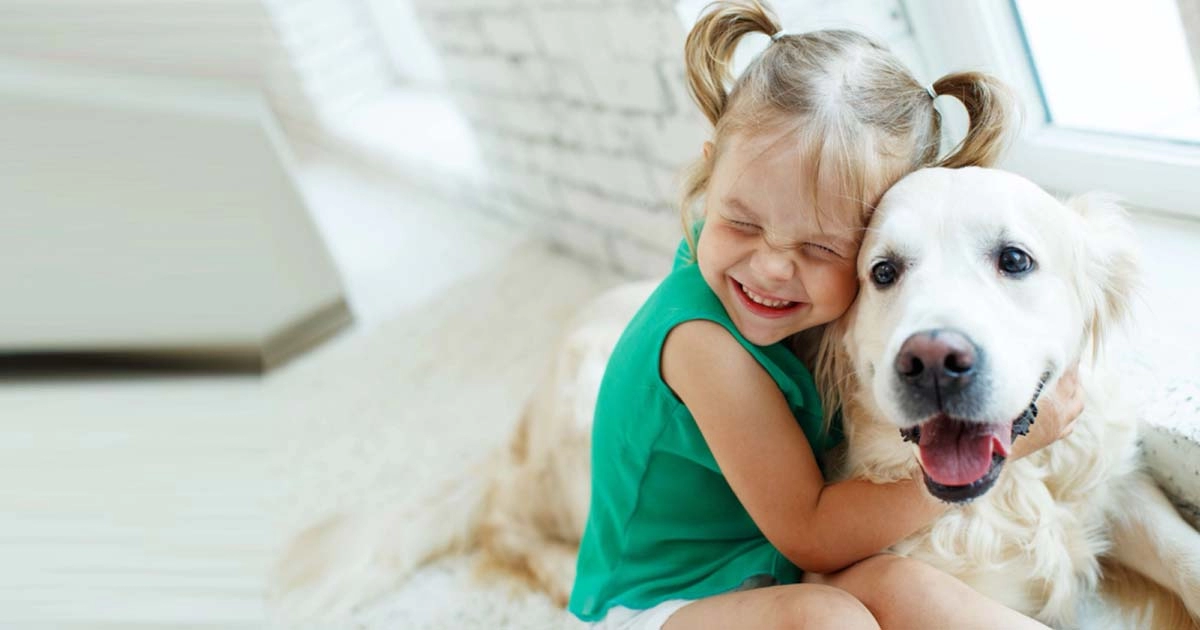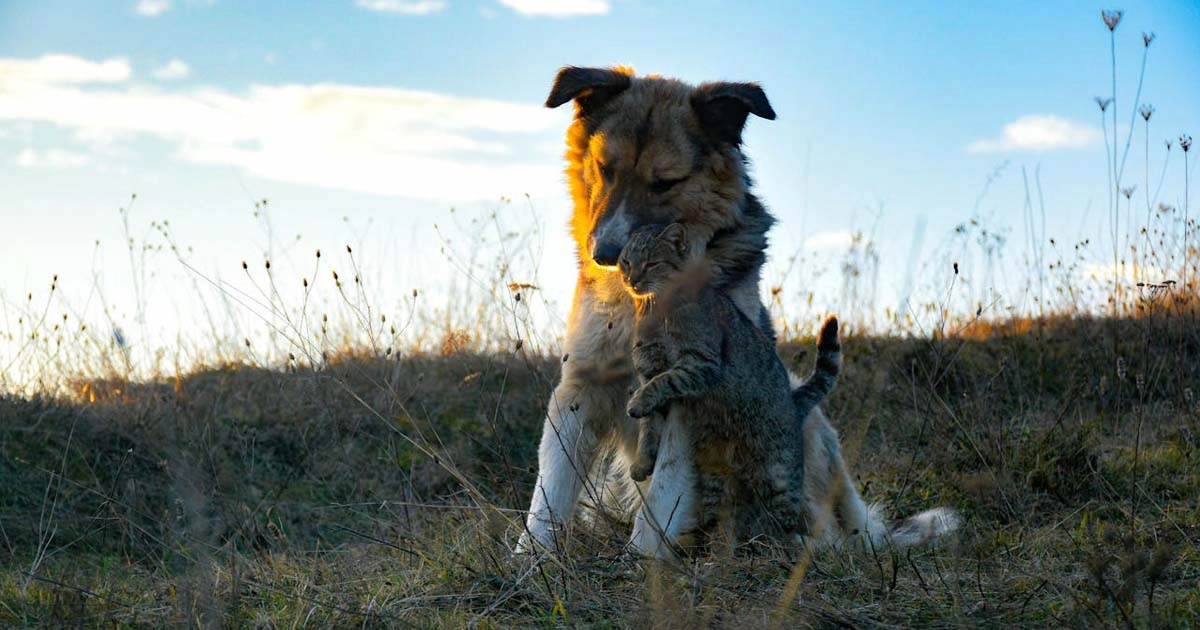8 Reasons to listen to your kid and get that pet

General
12/12/2023

Pets might be a lot of work for families, but they can also be very good for your kid’s mental and physical health. When it comes to childhood milestones, there’s one that we don’t talk about as much: the moment our child asks us to get them a pet.
Maybe it happens after they watch the Sesame Street episode where Elmo finds a puppy or after they go to a friend’s house and play with the new bearded dragon their family just got. But chances are, it will happen. Do you know what you’ll say?
As long as your family has the means and resources to take care of a pet and no one in the house is allergic, you might consider saying yes since pets can be very good for a child’s well-being.
How can having a pet during childhood be important?
Pets are influential since they can play many roles in your child’s life. These include being a cuddle buddy, playmate, friend, and comforter. Pets teach kids responsibility, but they’re also there to console your kid when they feel down. Plus, some can run around with your child when they need a friend that can keep up while they play.
Other more sedentary or container-bound pets provide consistency. Domestic animals can also reinforce some of your parental lessons, like those about sharing, self-esteem, and empathy.
Pet benefits on child development
Whether it’s a dog, cat, bunny, or reptile, pets can have very real and positive impacts on a kid’s emotional and physical development. Here are some of those benefits:
1. Emotional regulation
“Humans have two systems of regulation: co-regulation and self-regulation”, explains Kristen Antonio, licensed clinical counselor and school social worker from Massachusetts. “When children are born, they are biologically adapted to seek out the co-regulation from their caregivers”. This is why infants calm down when they’re held. But over time, they learn ways to self-regulate or self-soothe. One of the major benefits of growing up with pets, Antonio says, is that they give the child practice in learning both these skills since pets can both provide comfort and be comforted by the child.
2. Pets and mental health
Pets offer humans of all ages connection, which several studies have shown can greatly improve our mental health. A 2015 study Trusted Source, for example, found that growing up with a childhood dog correlated with lower rates of anxiety in kids, while a 2013 study found that dogs reduced how often military veterans with PTSD felt lonely, worried, or irritable. “Having a pet to interact with helps children with stress management”, explains Mayra Mendez, licensed psychotherapist and program coordinator at the Providence Saint John’s Child and Family Development Center in Santa Monica, California, “[because] play with a pet releases tension”.
A 2015 review of studies showed that dogs and horses have been found to reduce feelings of depression and anxiety. They have also been shown to reduce PTSD symptoms. This is why they’re often used as part of therapy interventions by mental health professionals.
“When I worked in a children’s hospital, pet therapy visits were definitely a highlight for our patients”, explains Jackie Tassiello, a licensed board certified art therapist who works with children. “Pets can offer us play, humor, connection, and an emotional anchor during stressful times”. “Children can learn to self-soothe, rest, and cope better with a pet”, she adds.
3. Pets can teach social skills
Companion animals can be emotionally supportive and present with kids, but they also need things in return, such as love and care. That’s why they can help the child better learn how to interact with other living things.
“Pets offer vital lessons around boundaries, connection, respect, and empathy”, explains Tassiello. “Pets need care and connection, which activates the ability [in kids] to act in empathetic, compassionate ways and form strong bonds”. In other words, pets help teach kids how to trust and form healthy attachments. “Play with a pet allows for the opportunity to engage in companionship and builds capacity for reciprocity and give and take”, Tassiello adds.
4. Pets can influence behavior
Depending on what kind of pet you get, you might also help teach kids tolerance and acceptance. “Pets have many needs and their own distinct personalities”, explains Tassiello. “They get scared, make mistakes, and some may have particular strengths and weaknesses”. As a result, kids learn that they cannot control others.
“Children not only learn to be kind, but they may also take in lessons around tolerating differences, embracing imperfection, forgiveness, and taking on multiple perspectives”.
5. Pets can improve communication skills
“Pets help children think and problem solve by interacting, playing, and [caregiving]”, says Mendez. “Language and communication skills are enhanced and the process of teaching the pet tricks and positive behavior provides children with the opportunity to practice clear, accurate, and meaningful communication skills”. This is also why there are programs devoted to helping elementary school-aged children improve their reading skills. Dogs are non-judgmental, comforting friends that will patiently listen, which gives children more self-esteem.
6. Pets teach life skills
Since pets are living, breathing animals that have needs, children can learn responsibility and dependability when they help care for them.
“For instance, if I am out with my kids and we need to get home to take our dog out, I am modeling for children how to think about and empathize with another living creature who is dependent on us for care”, explains Antonio. Plus, she continues, “Pets are also a beautiful source of empowerment for children who move through this world feeling quite disempowered in many spaces [because] to have a pet that they feel a sense of responsibility for is a beautiful way to help children build interpersonal skills that empower themselves and others”.
For example, when training a dog, you can’t just say “no” and expect the dog to adjust its behavior. You have to give the dog positive reinforcement for the behavior you do want to see. This teaches kids to manage expectations in a consistent, loving way.
7. Learning about loss and grief
Pets often become integrated family members, so when they die, they can teach the whole family lessons about how to deal with grief.
“Pets teach us that loss is complex, change is difficult, and that everyone’s healing is unique and personal”, says Tassiello. “Children benefit from having a say in how they want to process the loss and remember their pets and having a caring adult ask about their needs as they heal”.
This helps kids learn coping skills and the importance of building and relying on their support system when they need it.
8. They encourage activity
Some pets, like dogs, require regular walks and outdoor time. This can encourage children to be more active and outdoorsy than they might otherwise be, which can benefit their health.
Pets can benefit kids’ physical health in other ways too. For example, one 2017 studyTrusted Source found that babies with pets in their homes are less likely to develop allergies since they’re exposed early in life to allergens like pet dander or dirt that pets bring inside.
Is there a best type of animal for childhood pets?
It’s true that some pets are more engaging to children than others. You may choose a pet based on considerations such as:
- Home space
- Budget
- Family schedule (if your family is rarely home, a low-maintenance pet may be best)
- Your child’s level of comfort with critters and waste cleanup (some pets need live food, like worms, crickets, or mice)
A dog is more likely to play with a child and encourage them to be active since they need regular walks.
A cat will be slightly more independent and can teach children to take responsibility for feeding it while allowing them to learn about the cat’s boundaries around how it likes to be pet or touched.
A guinea pig is good for cuddles and eats lots of fruits and veggies, which may encourage healthy snacking in your kid.
At the end of the day, the biggest benefits to children are going to come from the pet that your child and family bond with the most.
Let’s recap
Pets are definite commitments for families. They require care for years and sometimes decades at a time.
But if your family has the means and time and no one is allergic, these companion animals can be beneficial for kids during childhood. They can provide mental and physical health benefits and help foster emotional regulation, social skills, responsibilities, and other skills in kids.
Next time your child asks to get a pet, consider the benefits as you weigh the decision. You might find that everyone in the family could benefit from having one.











